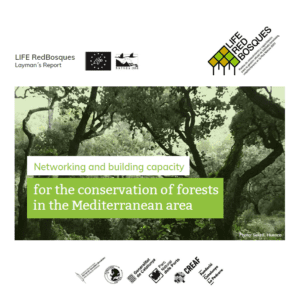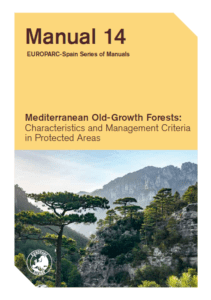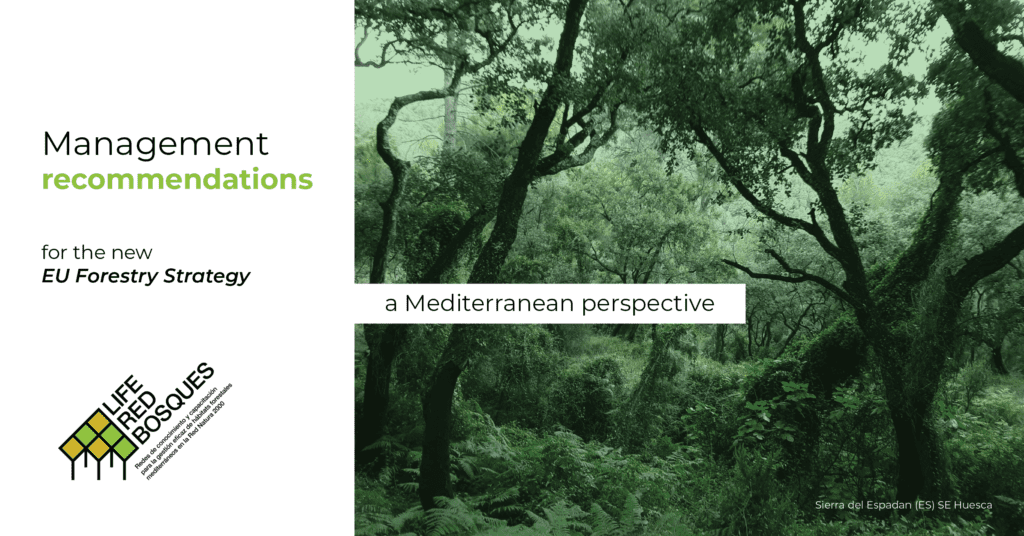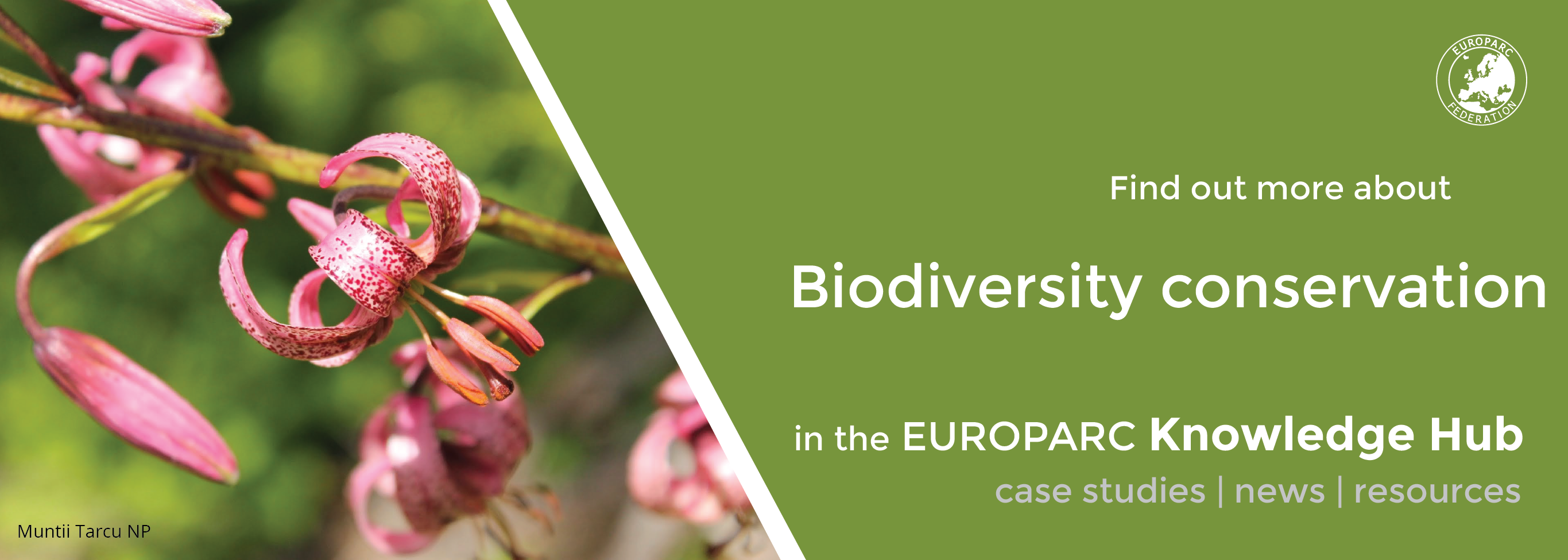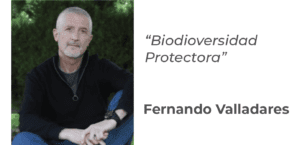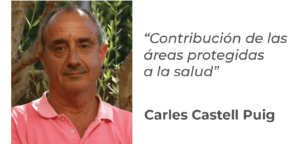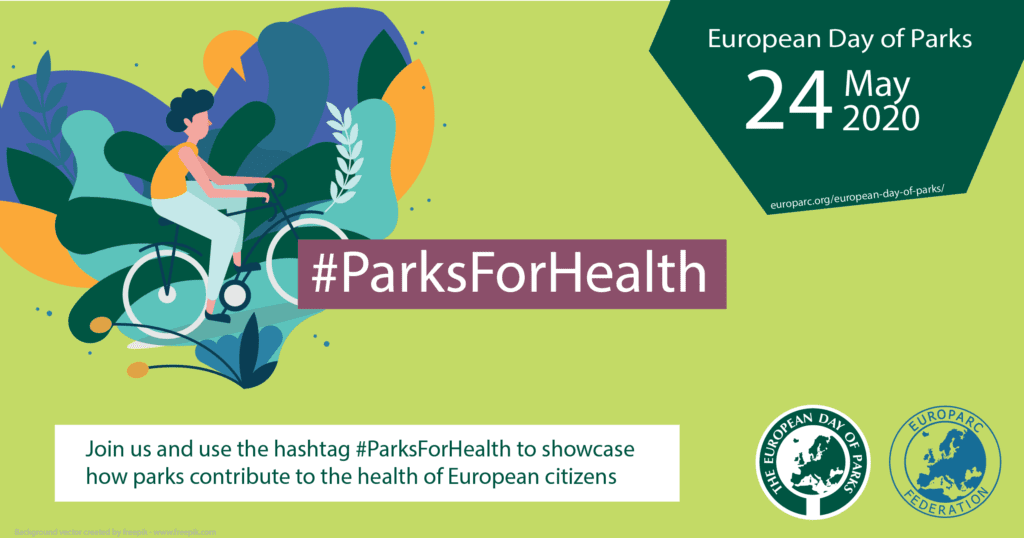The International Biodiversity Day & the value of Old-Growth Forests
The value of old-growth Forests in the Biodiversity Day and the outcomes of the LIFE Project RedBosques.
Happy Biodiversity Day!
The United Nations has proclaimed May 22 The International Day for Biological Diversity (IDB) to increase understanding and awareness of biodiversity. This year´s motto “Our Solutions are in Nature”, could not be better aligned with the launch of the new EU Biodiversity Strategy 2030, that happened just 2 days ago.
The European Commission calls for the protection of at least 30% of the land and 30% of the sea and recognises the role of all Protected Areas to achieve these objectives. The ambitions go further, with the aim of one-third of protected areas – representing 10% of EU land and 10% of EU sea – to be strictly protected.
This is where our old-growth forests will have a fundamental role “As part of this focus on strict protection, it will be crucial to define, map, monitor and strictly protect all the EU’s remaining primary and old-growth forests” (EU Biodiversity Strategy 2030)
In Europe, only 5% of forests present low levels of human intervention. In the Mediterranean area, this figure drops to 2%. That is why, EUROPARC Spain and Fungobe, with the Life Project RedBosques, developed intense research on the main characteristics of old-growth forests, develop a mechanism to identify mature stands, and experimented a different silviculture approach that can boost forest maturity. The project was focussed on the Mediterranean are, but its outcomes and methodologies can be replicated in other regions too.
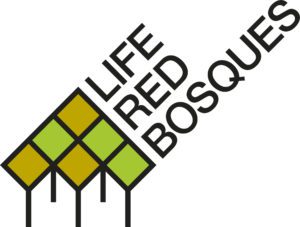
The Value of Old-Growth Forests: LIFE RedBosques
RedBosques promotes silvicultural practices in Mediterranean protected areas based on boosting forest maturity, biodiversity and resilience against climate change. The new forestry management strategies proposed by RedBosques give priority to the protection of mature stands and the promotion of the scarcest or currently non-existent features of maturity.
To learn more about the importance and the characteristics of mature stands, read the arcticle Why do we need old-growth forests? on our website.
During the project implementation, RedBosques focused on increasing knowledge about conservation, on developing guidelines for forest management in protected areas and on creating a network of reference forest stands.
>>>>> Download the Full Report: available in English and Spanish <<<<<
From theory to practice: forestry management geared toward conservation
RedBosques provides guidelines for forest management in protected areas which propose a silvicultural approach in which production and conservation targets are compatible. EUROPARC Spain produced a Manual to explain how with recommendations and the presentation of four
case studies, each following a different management alternative: non-intervention in Parque Nacional de la Sierra de Guadarrama, deadwood management to increase diversity among saproxylic coleoptera in Parc Natural del Montseny, silviculture compatible with maturity on private estates in Parc Natural dels Ports, and enhancement of structural diversity in areas of Aleppo pine reforestation in Zaragoza.
Manual available in English and in Spanish.
The Network of Stands of Reference
A standardised methodology was developed for the identification and characterisation of old-growth stands. The transfer of cutting-edge scientific knowledge to management has been a key component of the project, with the creation of an assessment panel made of scientists, forest managers and Natura 2000 Network managers.
In Spain, 160 stands with features of maturity have been identified, that correspond to 20 different forest habitats. Of these, 43 are defined as stands of reference.
The online tool RedBosques that was created, comprises a database of old-growth stands in Spain, available here: redbosques.creaf.cat/redbosques.
RedBosques Resources
- Website www.redbosques.eu
- Report: Old-growth forests: characteristics and conservation value
- Mature forests: frequently asked questions
- Fact sheet of LIFE RedBosques project
- Poster: What is an old-growth forest?
- Video 1: Old-growth forests and Biodiversity (6:00 min)
- Video 2: Models for a new silviculture (9:26 min)
- Video 3: The Stands of Reference Network (10:40 min)
Read also:
Natura 2000 Day & the Global Coalition for Biodiversity
EUROPARC members are responsible for the management of thousands of Natura 2000 Sites across Europe! On the Natura 2000 Day, we make a special call to all our members to join the EU Coalition for Biodiversity Conservation.
The Global for Biodiversity
On the occasion of the World Wildlife Day (3 March 2020), the European Commission launched a new global coalition for biodiversity conservation in Monaco. The Commission is calling on all world Protected Areas, aquariums, botanic gardens, zoos, science and natural history museums to join forces and boost public awareness about the nature crisis.
It is crucial that all of us learn just how real the nature crisis has become. We urgently need to take global action to protect and restore biodiversity.
said the European Commissioner for Environment, Oceans and Fisheries Virginius Sinkevičius, adding: “Otherwise much of the nature we love, and depend on for our food, health, and economy, is in danger of disappearing forever. Like me and my family, millions of people visit natural history museums, botanic gardens, national parks and similar institutions every day. With their collections, education and conservation programmes, they are the best ambassadors to raise public awareness about the crisis looming over all of us, if we do not act now. If our only chance of seeing a species is in these institutions, then we will all have failed.”
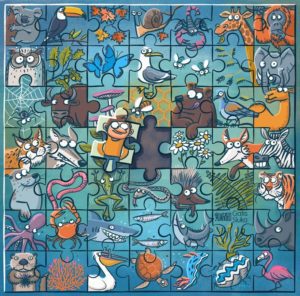
What can Protected Areas do?
With the current situation, many Protected Areas have their doors closed or are finding new strategies to re-open, adapting to the new reality. More than ever, it is our chance to show the world the importance of a healthy nature for a healthy society. Humanity is finally becoming aware of the need to take care of our common natural heritage. And millions are waiting impatiently for the time they will be allowed to enjoy their beloved parks and Natura 2000 sites again.
So this is your chance to join the Coalition!
It is simple: World protected areas, aquariums, botanic gardens, zoos, science and natural history museums are being asked to now intensify their communication actions about biodiversity. This means displaying a common message at their entrance, but also engaging in educational and other activities related to the protection and restoration of biodiversity in all its forms. Welcomed by the United Nations Environment Programme (UNEP), this new bigger coalition will be organised by the European Commission and endorsed by the EUROPARC Federation.
Download the Common message to be displayed
The Commission also encourages national, regional and local authorities, non-governmental organisations, businesses, scientists and individual citizens to play their part in raising awareness ahead of the UN Biodiversity Summit. Following the Summit, the focus of the coalition will be on coordinated actions with tangible impact aimed at bending the curve of biodiversity loss.
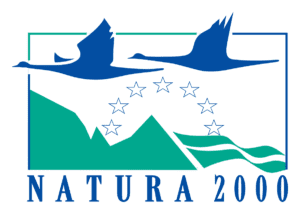
EUROPARC & Natura 2000
The EUROPARC Federation gathers amongst its members a significant number of the N2000 sites managers – at the local (sites and protected areas), regional (authorities, NGOs) and national (national agencies, ministries) levels. It is assumed that approximately 40% of the current N2000 network is managed by the EUROPARC members. N2000 undoubtedly underpins our strategy and is the focus of most of our activities, from the European strategies and policies to the ground and field management.
Approximately 40% of the current N2000 network is managed by the EUROPARC members
European Day of Parks – Online Events
This year’s European Day of Parks on the 24th of May is a special one! Due to the restrictions regarding COVID-19, many of us can’t visit parks in person, however, our protected areas have worked extra hard to still give you the opportunity to connect with nature. This year we invited Parks to show how they contribute to the health of European citizens, that is why we launched the social media campaign #ParksForHealth. We have received many responses and are grateful to all parks that participated. Check out some of the great initiatives created by parks:
“ReConnecting with Nature” in Apuseni Nature Park (RO)
Apuseni Nature Park started a great online campaign focussing on the health benefits the park offers. They launched an online questionnaire to measure the level of public awareness on the topic of Healthy Parks, Healthy People. Additionally, over a period of 4 weeks they prepared materials to be published daily online, with a new topic every week:
– Week 1: Get to know your park, get to know your nature
– Week 2: Natural resources, benefits for your health
– Week 3: Collaboration for a healthy community
– Week 4: Successful projects, examples of good practices
Lastly, Apuseni Nature Park will launch a “ReConnecting with Nature” map online on the European Day of Parks, 24th of May. Here locations that visitors normally wouldn’t stop by are highlighted. Check out their Facebook to see all posts! https://www.facebook.com/pg/parculnaturalapuseni/posts/?ref=page_internal
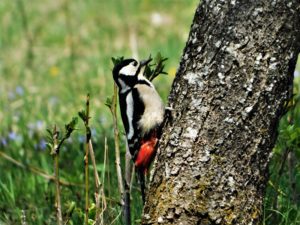
Great spotted woodpecker. Photo by Nicolae Scrob
Video series at Drents Friese Wold National Park (NL)
The Drents Frisian Forest National Park has produced a number of videos for this special day, which underline how this park contributes to our health and features some great shots of the park. Check out the videos on Youtube!
Digital excursions through the National Parks of Netherlands (NL)
IVN Natuur Educatie offers digital excursions available from the 22nd of May, so everyone can experience Dutch nature digitally with one of the foresters or National Park Guides. Check it out here!
National Park Quiz (NL)
How well do you know the National Parks of the Netherlands? That’s the question, or “questions”… Would you like to know more about the unique, special nature of the National Parks or would you like to put your knowledge of nature to the test? Then participate digitally in the special nature quiz! The quiz will be online from Friday May 22nd at 12:00!
On site events in Estland (EE)
In Estonia, the restrictions are less severe. Throughout the country and its national parks, there are 60 events organised! For example, Tipu Nature School celebrates the European Day of Parks with an event for families. Families can build bird and small insect nesting aids. Apart from that visitors can scoop and have a closer look at water insects in the pond, discover the world through the microscope, test their sense of taste, try to walk on stilts, test their knowledge on protected areas and have a look at Tipu Nature School’s farm animals. As only two families can participate in the program at the same time, prebooking is needed.
In the Lahemaa National Park (which received the Charter for Sustainable Tourism destination in 2019) a dozen hikes take place, from shorter cultural history walks to longer Nordic walking tours. In addition, the manor culture, cinematography heritage, managing semi-natural communities, medicinal plants and edible flowers will be introduced. Local restaurants are also open and some offer picnic packages to take away.
At Matsalu National Park (received Charter for Sustainable Tourism in 2015, applying for re-evaluation in 2020) canoe trips take place on the Kasari River. Here you can look for traces of beavers and enjoy the beauty of the meadows. If you are lucky, you can meet elk, beaver, common kingfisher and hear the sounds of the great bittern and corncrake. Local youth centre offers a special hiking trip for the local children.
At Soomaa National Park (applying for Charter for Sustainable Tourism in 2020) you can go for a canoe or dugout canoe trips. Local guides help to interpret the historical village landscapes.
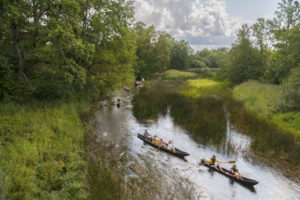
Dugout canoe. Photo by Sandra Urvak
Stork Live Stream of Zwin Natuur Park (BE)
How about some digital bird watching? Zwin Natuurpark has a livestream up on YouTube where you can follow two stork couples and their newly hatched chicks.
Virtual viewpoints in the Nature Park Black Forest (DE)
Nature Park Black Forest in Germany is bringing nature to your living room! They set up a total of 16 virtual viewpoints in the central and northern Black Forest. Visitors can enjoy a 360-degree view and discover the Black Forest landscape and special points from home. Check it out here.
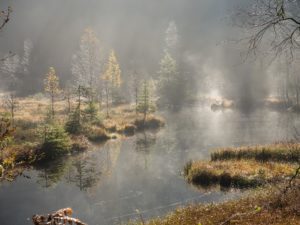
Black Forest National Park, Germany –
Buhlbachsee photo by Arne Kolb
Wadden Sea National Park (DE)
The Wadden Sea National Park has an array of online videos to help you reconnect to nature and learn something new! Here is a selection of the online offers:
- Video guided tours with biologist through the National Park Centre Multimar Wattforum.
- 360° video from the Wadden Sea World Heritage Site at Westerhever Lighthouse with National Park Ranger Christian Piening.
- 360° video of the highlights at the National Park Centre Multimar Wattforum – virtual tour with exhibition director Claus von Hoerschelmann.
- Animated explanatory video on the Wadden Sea World Heritage Site.
- They are part of a 360° game app on German World Heritage Sites. You can download the app here.
- Become a Junior Ranger on the Internet – Discover nature in an online game.
Bicycle tour through Brijuni National Park (HR)
On the occasion of the International Day for Biological Diversity, which is celebrated on May 22nd and the Day of Nature Protection in Croatia, the Brijuni National Park offers a special interpretive bicycle tour aimed for families or interested individuals. The tour includes expert guidance and visiting of various terrestrial habitats of Brijuni National Park. Visitors will have the opportunity to get to know some hidden and less known parts of Veliki Brijun and learn about the importance of the diversity of ecosystems, habitats and species.
Guided tour through Balaton Uplands National Park (HU)
The Balaton Uplands National Park Directorate invites for an approximately 2,5 hours guided tour on Tihany Peninsula. During the tour the geological and cultural heritage, flora and fauna of the peninsula is interpreted by their professional guide. Application is required until 23th May, 2020.
HEALTHY FOOD RECIPE CONTEST of Natural Parks of Cádiz (ES)
The Natural Parks of Cádiz will publish an on-line recipe book with the healthy foods of the different municipalities that integrate these protected spaces, to show the rich intangible heritage through its healthy cuisine, and promote its conservation. The recipe book will include, besides the way of preparing the dishes, a more experiential section where advice, seasons and special days in which to cook will be collected; best bars or restaurants where to taste them; smells, flavours and all kinds of anecdotes that the author wants to share with readers. Check it out here.
Online ParkFest at Parco Naturale Prealpi Giulie (IT)
On the 24th of May the Parco Naturale Prealpi Giulie will host an online Parkfest with two LIVE FaceBook events (10.30 o’clock and 18 o’clock). Discover the wonders of nature, get in touch with national and international experts in a constructive and innovative dialogue and understand the importance of Nature and Parks for our health.
To see more posts and activities on the European Day of Parks 2020 search #ParksForHealth on social media or have a look at our event page!
[webinar in Spanish] Salud, Biodiversidad y Áreas Protegidas
El 22 de mayo os invitamos a celebrar con nosotros 2 fechas importantes: el Día Internacional de la Diversidad Biológica y el Día Europeo de los Parques. En este seminario web, co-organizado con EUROPARC España y OAPN, veremos el importante vínculo entre una naturaleza sana, para una sociedad sana.
Salud, Biodiversidad y Áreas Protegidas
- 22 Mayo 2020
- 13:00 CEST
- La participación es gratuita pero es necesario registrarse. Regístrate aquí: https://webinarsaludybiodiversidad.gr8.com/
Las áreas protegidas siempre han cumplido una función esencial de protección de la salud de la humanidad a través de la conservación de la naturaleza. La situación que estamos viviendo en todo el mundo con la aparición de la pandemia del COVID-19 nos ha hecho a todos más conscientes de la importancia de esta función esencial.
Existen crecientes evidencias científicas de que las experiencias en la naturaleza son fuente de salud física y mental – desde los primeros trabajos procedentes de la psicología ambiental sobre el efecto restaurador de la naturaleza, hasta los estudios más recientes sobre salud percibida y entornos naturales y de beneficios añadidos a la realización de ejercicio físico en entornos naturales.
En este webinario se darán claves desde el ámbito científico que nos ayuden a trasmitir mejor esa función, así como ejemplos concretos ya en marcha que ilustran que no solo es posible, sino muy deseable, que las áreas protegidas trabajen en alianza con el sector de la salud para mejorar sus funciones sociales.
Bárbara Pais, de la Federación EUROPARC, abrirá la sesión con un vistazo a la celebración del Día Europeo de los Parques en 2020, mientras que Marta Múgica, de EUROPARC España, presentará el programa Sociedad y Áreas Protegidas y enmarcará la importancia de los Parques para nuestra salud.
Ponentes invitados:
Carles Castell Puig, biólogo y doctorado en ecología, trabaja en la Diputació de Barcelona. Es experto en conservación de la naturaleza, y tiene una larga carrera en la planificación y desarrollo de la interfaz entre las personas y la naturaleza. Desde 2016, Carles es también miembro del grupo de trabajo sobre Salud y Áreas Protegidas de la Federación EUROPARC.
Este webinario está co-organizado con EUROPARC España y el Organismo Autónomo de Parques Nacionales, en celebración del Día Europeo de los Parques.
